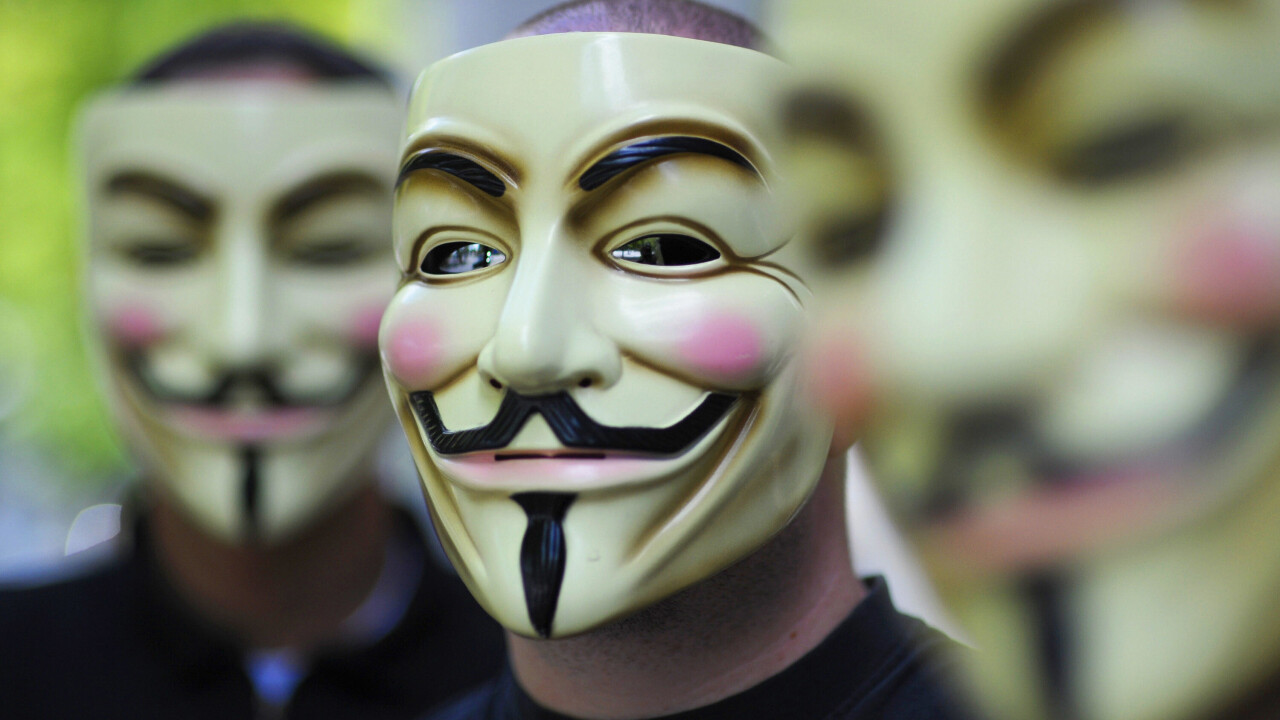
Back in the summer of 1995, I encountered my first online troll. At that time I’d been using the Internet for a few months only (via the monopolization of a favourite Mac at the back of a university computer lab). I came across the troll through a text-based chat forum that I regularly frequented. The chatroom, called Kajplats 305, resided on servers based in Malmo, Sweden.
While I was learning the ins-and-outs of Unix and Telnet, I’d sporadically chat to other Kajplats users – all random strangers keen to explore this curious new social space. The chat was full of newbies eagerly throwing themselves into the bamboozling real-time experience of online social collisions: for the most part, the chats veered from the mundane to the thoroughly engaging.
Most – if not all – Kajplats users employed pseudonyms, or single nicknames (known as “nicks”) to identify themselves. None of the chat participants thought it necessary to divulge their “real” identities/names, with part of the allure being the anonymous nature of the interactions. Engaging with such a curious, expressive group in a seemingly boundary-free arena (although sounding a bit too hippy-utopian, that’s how the experience played out) helped define potential uses of such technology, even shaping my future creative practice.
During one particularly interesting chat session involving a Swedish IT specialist and an unspecified individual from the USA, the notion that online chat forums were exclusively populated by curious, well-minded individuals took a direct hit. A user entered the chat with an unrecognisable nickname comprised of what appeared to be random numbers – for the sake of convenience, let’s simply call them “T-Roll”.
At first T-Roll posted strings of nonsense punctuation peppered with obscenities, which the Kajplats chatters promptly ignored. After receiving little reaction to these entries, T-Roll proceeded to post image after image of tortured prisoners of war, Neo-Nazi logos and graphic photographs of car accident victims (among others). The imagery – what I thought of at the time as “gore porn” – seemed unrelenting and beyond gratuitous: appeals to T-Roll to stop only resulted in further additions to the already gore-laden screen.
Defining an online troll
In our current media climate, the words troll and trolling appear to pop up most regularly when describing destructive behaviours or states (copyright trolls, patent trolls, cyberbullying trolls). When encountering my first net troll, I didn’t immediately frame them as evil – to me, they were simply an attention-seeking individual with obvious, and potentially serious, issues. At the time, however, I wasn’t so rational about the entire experience: I reacted instead with shock and disgust.
Of those users present at the time of T-Rolls attack, none took the flamebait: not one user directly responded to the actual content on violent image stream – with the exception of those who requested that T-Roll cease posting. Luckily, when I returned to Kajplats later that week, T-Roll had disappeared, taking their ugly stream of gore with him/her.
In relation to present-day definitions of trolling, my encounter with T-Roll may seem tame with minimal indications of what nowadays defines online trolling. The chief indicator of current trolls is their ability to provoke unsuspecting users through “bait” posts or actions, all designed with the specific intention of garnering a reaction. Vicious goading and incitement through personal attacks is indicative of a negative troll. These types of trolls engage in disseminating malicious material purely for the sake of exposure, attention, or some other unspecified – but still detrimental – motivation.
The negative troll engages in deliberately illegal and/or damaging and disruptive behaviour with highly destructive effects, such as online vandalism (like those intentionally defacing RIP sites) and continuous aggravation through comments designed as bait for responsive targets (cyberbullying).
There are those that think the act of trolling may also operate at a far more innocuous level, originating from those with more positive intentions or altruistic motivations. This troll version is termed the constructive troll. The constructive troll advocates social change through exposing establishments, organisations and individuals they view as corrupt, deceptive, or criminal. Constructive trolling differs from negative trolling through its lack of malevolence (think: Devil’s advocates or whistleblowers) with a deliberately funny, or cheeky, emphasis. Constructive trolls may seek to bring attention to issues like the suppression of freedom of information laws, covert censorship, or hypocrisies evidenced at a heavily-institutionalised level (think: Wikileaks or the Occupy movement).
Trolling in action: The doxing of Violentacrez
On October 12th 2012, Adrian Chen, a writer for Gawker.com, published a story revealing the real-life identity of Violentacrez (Michael Brutsch), a moderator on the popular content aggregation site Reddit.
In the article, Chen accused Brutsch of:
…distributing images of scantily-clad underage girls, but as Violentacrez he also issued an unending fountain of racism, porn, gore, misogyny, incest, and exotic abominations yet unnamed, all on the sprawling online community Reddit. At the time I called Brutsch, his latest project was moderating a new section of Reddit where users posted covert photos they had taken of women in public, usually close-ups of their asses or breasts, for a voyeuristic sexual thrill. It was called “Creepshots.” Now Brutsch was the one feeling exposed and it didn’t suit him very well.
Chen goes on to describe Brutsch’s negative trolling while revealing an obvious dislike of Reddit (Chen has an alleged vendetta against the site).
Since Chen’s disclosure of Violentacrez’s real identity, Brutsch has been fired from his job and he and his disabled wife are now the subjects of considerable harassment. What Chen did to Brutsch is an example of doxing. Urban Dictionary describes doxing as:
…a technique of tracing someone or gather information about an individual using sources on the internet. Its name is derived from “Documents” or “Docx”. Doxing method is based purely on the ability of the hacker to recognize valuable information about his target and use this information to his benefit.
Doxing reflects a contemporary obsession with outing what’s previously been hidden, with the desire to be the first to unearth and disperse hidden information to a large – if not global – audience.
It’s debatable whether Chen himself perpetrated a type of negative trolling on Brutsch, with Brutsch now being the victim of unwanted bullying and substantial negative attention due to Chen’s exposure. There’s also the issue that Gawker itself regularly publishes images of a similar unpleasant and titillating nature, with their “Upskirt News” section displaying chronologically-ordered photos of a partially-nude Lindsay Lohan (including such questionable titles as “Nickelodeon Ass Slip” and “Definitive Vagina Photo”).
It’s also conceivable that Chen had more altruistic motives when outing Brutsch, such as a desire to halt the continual spread of misogynistic and offensive material that Brutsch had been posting – and approving as moderator – under the Violentacrez moniker. What appears to be missing in subsequent discourse concerning this incident is a deep examination of the causes of (and consequences and motivations surrounding) trolling behaviour.
Do not feed the trolls: Anonymity and free speech
Whether negative or constructive, most trolls operate under a cloak of anonymity. This anonymity affords them the ability to engage with others (adversely or beneficially) without the hindrance of a definable identity: combine this with the significant freedom of expression that anonymity produces, and that’s one highly volatile mix.
In the online culture invoked by sites like Reddit, freedom of expression is a given. Reddit’s user base provides content and dialogue that can be surprisingly entertaining, challenging, creative, and educational. The platform promotes an attitude of taboo-breaking and social change in a highly idiosyncratic way (think: a plethora of meme-culture references mixed with an “anything goes” ethos). To illustrate just how popular the site has become, Reddit’s “AMA” (Ask Me Anything) feature was recently used by President Obama as an electioneering tool.
http://www.youtube.com/watch?feature=endscreen&NR=1&v=XrIPf3Ic4_0
Yet Reddit is far from problem-free, with moderators repeatedly grappling with complexities involving the aggregation of such free and open online content. The site contains forums (or subreddits) with exceedingly controversial material: some content is certainly unpleasant, with morally questionable content being regularly approved and displayed on site. For a short time after the doxing of Violentacrez, Reddit also banned any links leading to Gawker content, which flies directly in the face of their free speech advocacy.
In a recent CNN interview, Michael Brutsch asserts that both he and the Reddit team:
…did our best to maintain the anonymity of these people [in the photos Brutsch posted and approved] without thinking, you know, about the wider repercussions. If people were to tell us, ‘I know that person’ or this was me, we would remove them. Well, I say we would remove them, this is one of the big problems…
Brutsch continues the interview with additional buck-passing, inferring that Reddit was ultimately responsible for his personal actions:
All I can say is that I’m sorry. I have made mistakes. I understand…that Reddit encouraged and enabled this sort of behaviour and I shouldn’t have been a part of it. Nobody on Reddit really had anything to say about it at all.
Brutsch then tells CNN of his realisation that there are situations where posting certain content is inappropriate. He describes how he started off posting images of soft-core porn in labelled folders (subreddits), and used hot button topics to deliberately enrage people, treating both their reactions and the overall forum aspect of Reddit like a game. He then mentions he accepts that there are consequences to these actions in the shape of negative effects on both himself and his family. At no stage does he unreservedly apologise to the women and girls contained in the aforementioned subreddits, or any of the other dubious subreddits over which he had direct control.
The interesting stage of the CNN Interview comes when Brutsch makes no attempt to tie these consequences to any larger moral or ethical-based framework, but instead focuses on the immediate penalties to his everyday life. He then positions Violentacrez as a character, thereby distancing himself again from his actions:
…This goes back to how the Violentacrez character first started…my first thought was (or Violentacrez’s first thought was) ‘You know, I see those pictures on my incoming image stream all the time. I could easily create a Reddit for that and fill it up with some pictures’. So I did, to outrage people [with] no idea where the pictures came from…I created (back in the day), I created a Reddit called /r/rape for rape jokes, I create one called /r/pregnant for pregnant women…I am, to some degree, apologising for what I did. Again, I was playing to an audience of college kids, and…when…two years ago, when…all of this was at its height, the audience was appreciative and supportive of the sort of gallows humor that I put out there.
When the CNN Interviewer goes on to says he’s still unclear why Brutsch would behave the way he did in regards to posting such material on Reddit, Brutsch likens himself to a monkey pressing a button in order to get a food reward. He admits that his repeated postings to these forums was addictive, and further compares his behaviour to video gamers seeking virtual rewards (mentioning statistics building in World of Warcraft and Kingdoms of Camelot), questioning why Reddit users desire masses of karma points (or approval from peers via a leaderboard type voting system). Brutsch again attempts to pass off responsibility for his actions by invoking the idea of operant conditioning: his assessment of his own aberrant behaviour seems prefaced only on psychological concepts such as disinhibition or deindividuation, without any emphasis on personal responsibility and individual agency.
It’s only when he’s directly questioned about being outed as Violentacrez that Brutsch says he made a big mistake, saying:
“There’s really no point anymore…no-one’s going to buy into the Violentacrez mystique anymore, it’s gone. That and the fact that I have, as with the rape and pregnant Reddits, I have come around over the last few months to understand that some of these things can be harmful to other people.”
Brutsch’s delayed acknowledgment regarding the consequences of his actions seems somehow ludicrous: how could an adult man not realise the impact of posting such controversial content?
What lurks behind Trolldom
Back in 1995, my encounter with “T-Roll” forced me to consider the motivations of online users who actively seek to disrupt and derail the experience of others. At that stage social media was yet to manifest as an online force, with Facebook and Twitter a long way off. In contrast, in 2012 we live in an attention-based networking age. Social media and networked apps promote constant feedback. There’s constant pressure to respond to these digital tidbits, and to do so quickly.
Social media can act to condense and compress real-time communication rules to the extent that an individual feels like they operate in a place where no rules apply. Such a removal of regular social mores can create tiny bubbles of delusional power, where negative trolls feel free to operate without ethics or restraint. Behaviour becomes reactive, with emotions – rather than reason – guiding action.
There’s also the problem of the instantaneous (and often fleeting) nature of online interactions, with an absence of extended context promoting immediate emotional outbursts rather than thoughtful, measured responses. It’s this precise impulse to respond in a knee-jerk manner that makes negative trolls continue to do what they do: with little or no reactions, they have nothing on which to feed.
Constructive trolls operate differently, and demand different reactions. Constructive trolls may often be mislabelled as trouble-makers when they may simply be attempting to engage in legitimate, though often contrary, dialogue.
As it stands, it’s as if a large part of networked interactions lack the gravity of maturity that would enable participants to process material they’d normally ignore when offline. The portability and multifunctional aspects of mobile devices contributes to the highly personalised nature of online spaces: ironically, people who are targeted by negative trolls may suffer through increasing isolation and helplessness due to this intensely personalised focus.
There’s also the issue of attention-seeking in today’s social media climate (and pop culture in general). Many users feel constantly compelled to post content that demands feedback, and such users only feel ratified when being notified of multiple likes, retweets and other validating data. Such feedback loops may even prompt narcissistic and egotistical behaviour from persons who normally wouldn’t act in such a fashion offline.
Social networks may act to amplify this need to base actions around the ego, and could even indicate a cultural shift away from dependable/established channels of power and reliable institutionalised information (think: the Global Economic Crisis and corresponding lack of any real accountability regarding the instigators, as well as grassroots responses from the Occupy movement). Does this explain why individuals like T-Roll and Brutsch assume that the provocation of outrage is a valid way of interacting? Where does the urge to provoke rage originate? Is this need to incite others a kind of search for communication beyond the confines of political correctness, with troll-based interactions reflecting a current state of turmoil and uncertainty that’s prevalent around the globe? Or is it just the drive to create any type of attention – no matter how tawdry – that could cause the originator to thrust through the constancy of online (firehosed) content and break through the anonymity barrier into mainstream media territory?
Does this type of current increase in negative trolling indicate a more sinister aspect to human nature when forced into change, when the state of the known becomes uncomfortably shaky as institutionalized certainty becomes less reliable (think: economies crumbling, or education and healthcare systems being in flux).
http://www.youtube.com/watch?v=mGX9ggmeS64
Useful tools to survive trolling
In terms of the best way to deal with negative trolling:
- Consider Impermium (which has ramped up its anti-spam protection to combat what it terms “abusive social spam”).
- Abide by the old-school Internet motto: “Do not feed the trolls”: it may seem simplistic, but in the majority of cases, it seems to work.
- Employ a Cognitive Therapy Approach.
- Get used to blocking.
http://www.youtube.com/watch?v=8t_UowLXCO4
- Like Chen, you also have the option to dox (or counter-troll) those you feel are being abusive. Be warned: this type of revenge approach may cause more problems than it’s worth, with troll and counter-troll feedback loops potentially spiralling out of control.
- Wait for legal systems to play catchup.
- Use YouTell: “…a new platform [which] seeks to tap the social sphere and your existing connections…to let you solicit honest feedback from those people you know”.
- Make sure to use common sense: if you’re an adult of a reasonable maturity level, try not to dwell on inflammatory or provocative material. If you’re a child, consult a reasonably mature adult before reacting to flamebait. Obviously, common sense only works with less severe cases of negative trolling.
When the words “troll” or “trolling” pop up in mainstream media channels, it most likely points to those individuals intent on ugly provocation, with the word troll most commonly being used interchangeably for “cyberbully” or even “hacker”. This rudimentary take on such a complex topic certainly makes for titillating media faire. Though what’s perhaps needed is a finer and more nuanced analysis, especially if we are to successfully tackle the negative troll and enhance positives associated with constructive trolling.
[TL;DR – If you’re going to troll, be constructive and not negative. If you’re considering responding to a troll, don’t. Employ common sense at all times when online, and if you’re a juvenile dealing with online trolling, consult a trusted and mature adult before reacting.]
Image Credit: Michael Gottschalk/Getty Images
Get the TNW newsletter
Get the most important tech news in your inbox each week.




